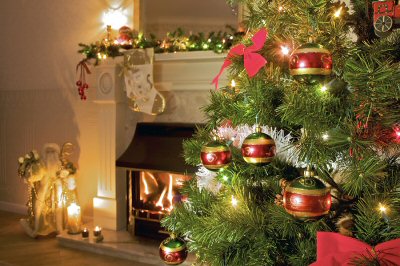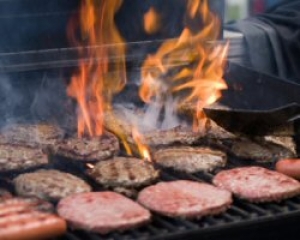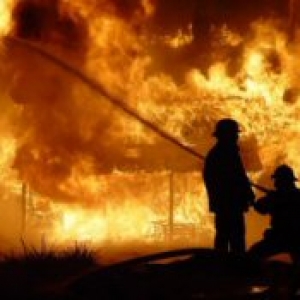 William M. Sparks 1945 - 2023
William M. Sparks 1945 - 2023
My father, William (Bill) Sparks, passed away sadly but comfortably Sunday morning, surrounded by his family. He was a kind and loving man with a heart of gold. There are so many who loved him and will feel this loss – in the business world and far beyond. He would say thank you to all of his small-business customer for their support, and he would wish everyone peace and happiness. I have run the William M. Sparks Insurance Agency for many years now, and I will continue to run it just as my father did and as he would want me to do. On behalf of my family, I thank you all for your kind words, well wishes and support at this time. --- Danielle Sparks
 Winter brings an increased risk for fires and other disasters. This is even more of a risk during the holidays when everyone is busy gathering with friends and family this time of year, it’s easy to overlook some simple safety measures that can reduce the risk of damage during the holidays.
Winter brings an increased risk for fires and other disasters. This is even more of a risk during the holidays when everyone is busy gathering with friends and family this time of year, it’s easy to overlook some simple safety measures that can reduce the risk of damage during the holidays.
- If you hang stockings on the fireplace mantle, then be sure to move them away from the fireplace before lighting a fire, and keep other decorations away from open flames and power receptacles and plugs. Statistics show that 20% of home fires that occur in December are the result of decorations that are too close to heat sources.
- Be sure your Christmas lights are used appropriately. Avoid using indoor lights in the outdoors, and vice versa; and see that the lights you use have been properly rated for their intended use. Take a moment to check each strand of lights for frayed or bare wires, damaged sockets and loose connections. If you expect to be stringing your lights together, limit to three strands to avoid overloading your extension cord.
- Consider battery operated candles as opposed to real candles to avoid a fire hazard. When using real candles, do not leave them unattended or where they can be easily knocked over.
- Avoid using lights on metallic trees which could become charged with electricity if the lights are not in good condition. Someone touching such a charged tree could be accidently electrocuted.
- When leaving the premises or going to bed, make sure to turn off all decorative lights. Keep live trees well-watered so they remain hydrated while in use. A tree that dries out can become a fire hazard if exposed to decorative lights,
View this video from the National Fire Prevention Association (NFPA) for more useful tips....
Home Insurance Tips
Be mindful of the risk of homeowners liability claims. Keep the front door and walkways well-lit and free of obstacles that could be a tripping or falling hazard for your visitors. In particular, if you decorate your lawn with any blow-up decorations that must be anchored in the lawn, monitor them to be sure they do not shift and obstruct your visitors’ path. The holidays can be busy for everyone and will be likely full of activities. A few practical precautions can help you and your loved ones to enjoy an accident-free season and can prevent you from having to file homeowners insurance claims when you would rather be celebrating.
Feel free to contact any of our very capable and experienced agents at the William M. Sparks Insurance Agency here in Lutherville/Timonium MD to discuss your home insurance. We can help you review your current insurance policy and explore your options to be sure you have the best coverage and protection according to your circumstances.
Food cooked outdoors, especially on a propane or charcoal grill in the backyard has a special appeal. But grilling outdoors can be dangerous, even deadly, unless you take precautions.
According to the National Fire Protection Association, each year, U.S. fire departments responded to an average of 8800 home fires involving grills, hibachis or barbecues. Of these fires, about started on a courtyard, terrace or patio while 29 percent started on an exterior balcony or open porch.
Nevertheless, if you are like most Americans, you too enjoy summer grilling. So, the following are some of the most important safety tips to assure that your barbecue is risk-free, whether you do a gas or charcoal grilling.
Safety Tips for Successful Backyard Grilling
- Place your grill on a level surface at least ten feet away from all other objects including structures like your house, garage, etc.; and stay clear of landscaping and traffic areas.
- When grilling is complete, be sure to keep children and pets well away from the grill until it has completely cooled.
- Never grill in an enclosed space including homes, vehicles, tents, campers, garages, etc. This can be a deadly risk both for fire and carbon monoxide poisoning.
- Use only long-handled grilling tools and wear dry oven mitts that cover your forearm to avoid burns when cooking.
- After grilling with charcoal, soak the coals with water and store in a metal container for disposal.
- After cooking on a gas grill, turn off BOTH the grill and the propane bottle.
Need some help making the best meal ever on the grill?
Check out this one-stop site for your next outdoor get together.
MORE ON GRILLING SAFETY
- Learn the proper use and care of the gas grill (Video: National Fire Protection Association).
- Get the NFPA Grilling Safety Tip Sheet (PDF)
We've all heard the stories: A company loses key resources due to a shooting spree by a former employee... A business is wiped out by earthquake or flood... A corporate data center is destroyed by fire and brings down a national network. As a business owner, you probably sympathize but then rationalize that business insurance or government agencies like FEMA will be able to help.
While business insurance benefits and government support offer financial assistance, will affected companies continue doing business in the wake of such disaster?
Would your business survive a significant disaster?
It should – if you have an up-to-date Business Continuity Plan that includes a tested Disaster Recovery Plan, and provided that all key people in your organization know how to use it.
What’s that? You have a Business Continuity Plan?
On the shelf since 2001, you say? In that case, you might only consider yourself safe if supply vendors, computers, employees and business process are all exactly as they were back then. (Of course, that would likely mean that you have other business issues.) You might ask yourself the following questions:
- When was your business continuity plan (BCP) last updated? In fact, have you designated someone to maintain it?
- If so, how well is that working?
- How do you know whether your BCP is “in shape “ and ready to see your business through a disaster, large or small?
Don’t have a Business Continuity Plan or a Disaster Recovery Plan?
Wondering where to start and how to create one? If you are a large corporate organization, this is a good time to seek out a reputable consultant who knows your industry. If you are a smaller business, the following guidelines might be all you need.
- List your key employees and their alternates, and be sure to add their critical functions and all possible contact information for each. It might be worthwhile to determine who among them is able to telecommute if necessary.
- Then list vendors, contractors and other resource contacts who are critical to your business operation, including those external professionals and services you would need to help you restore your processes.
- Identify important in-office equipment as well as heavier, external equipment and vehicles, and note important details such as vendors, serial numbers, etc. Also consider how you might quickly replace these items if they are destroyed, and note the details.
- List primary legal documents, insurance policies, bank records and details, etc., and note where each is kept. Consider attaching copies to your plan.
- Research and decide upon an alternative location where you can resume business if your primary site is destroyed, and collect all necessary contact details so that you could make arrangements quickly if needed.
- Organize all your material and document exactly what steps are needed to carry out the plan.
- Compile all material and make copies for your key participants, and keep the master copy in a safe place.
- Educate your internal and external contacts and then test your plan, making changes as needed.
- Designate someone to handle Business Continuity Management in your organization so that this plan remains current and available.
The Impact on Your Business Insurance
Your business insurance portfolio and your business continuity plan complement each other. How can you know how much and exactly which insurance coverage you need if you have not analyzed your processes and resources to develop your business continuity plan? How can you complete your BCP without considering your business insurance coverages? Together they provide your business with a strong safety net.
Is it time to evaluate your business insurance portfolio?
Here at the William M. Sparks Insurance Agency in Timonium, MD, we welcome the chance to review your policies with you, answer your insurance questions, and offer advice to make your business as prepared as possible to handle any disaster. So why not contact us today?
Tag Cloud

|
|
 |





